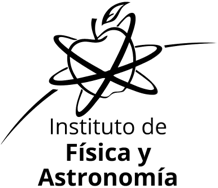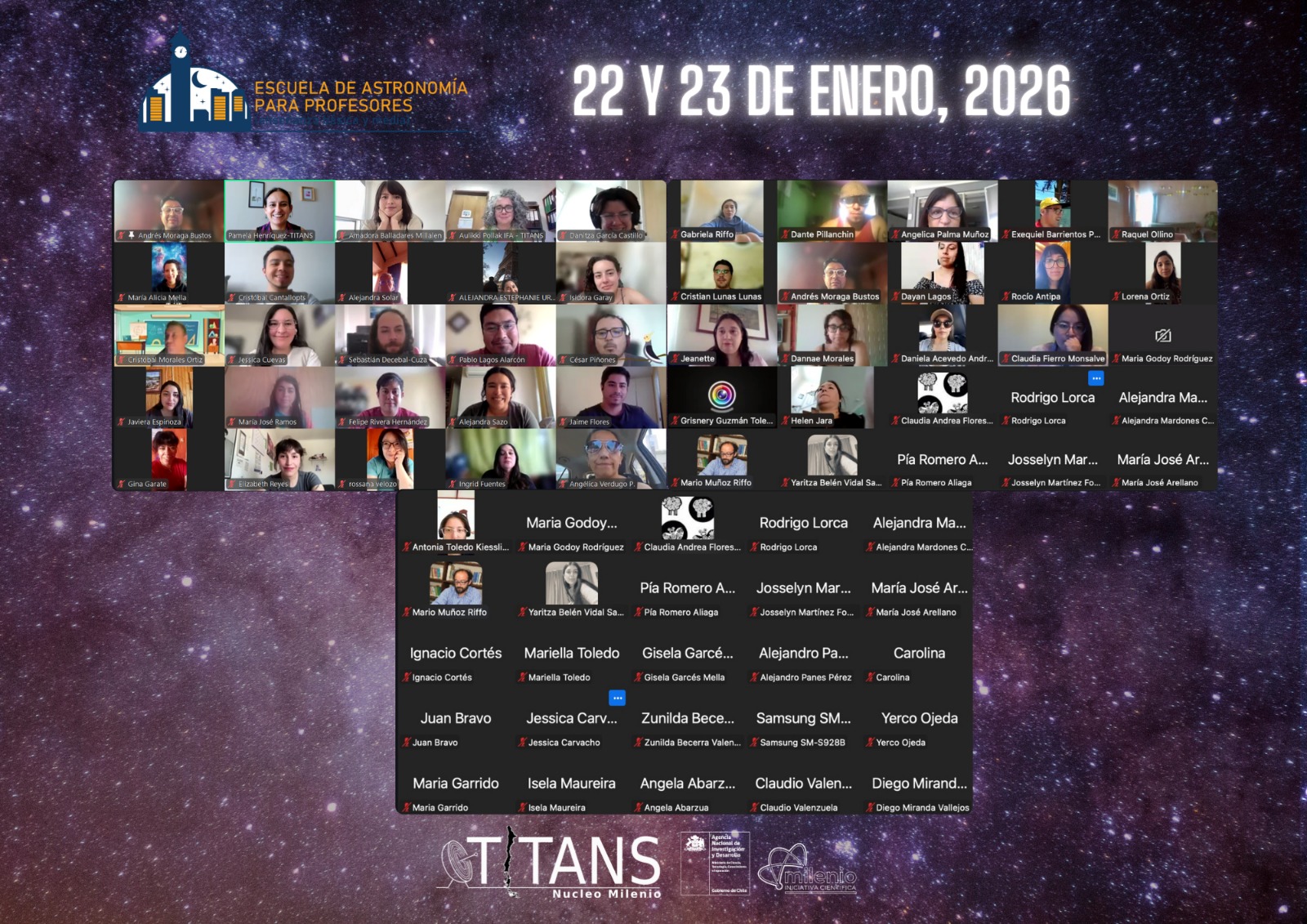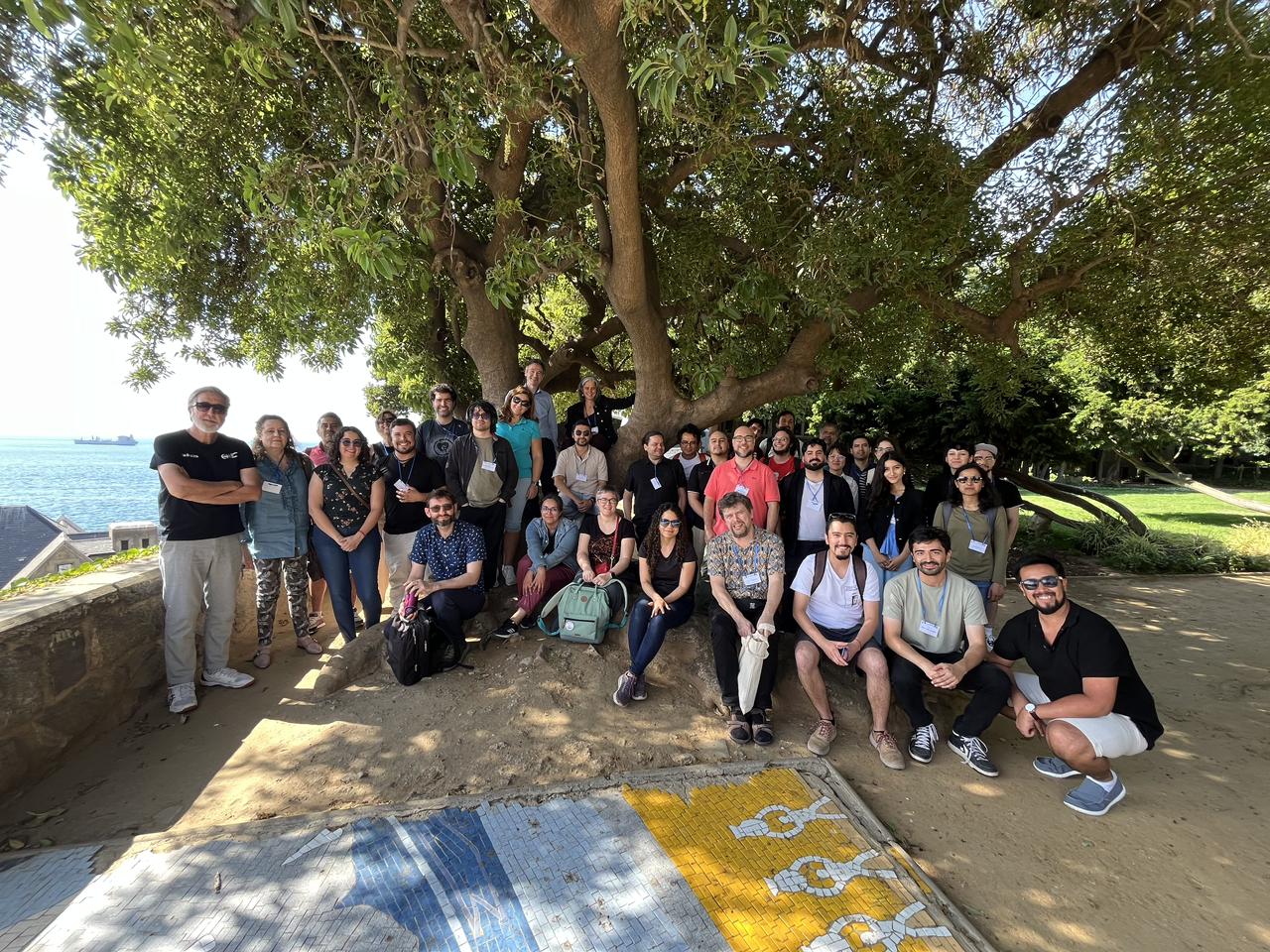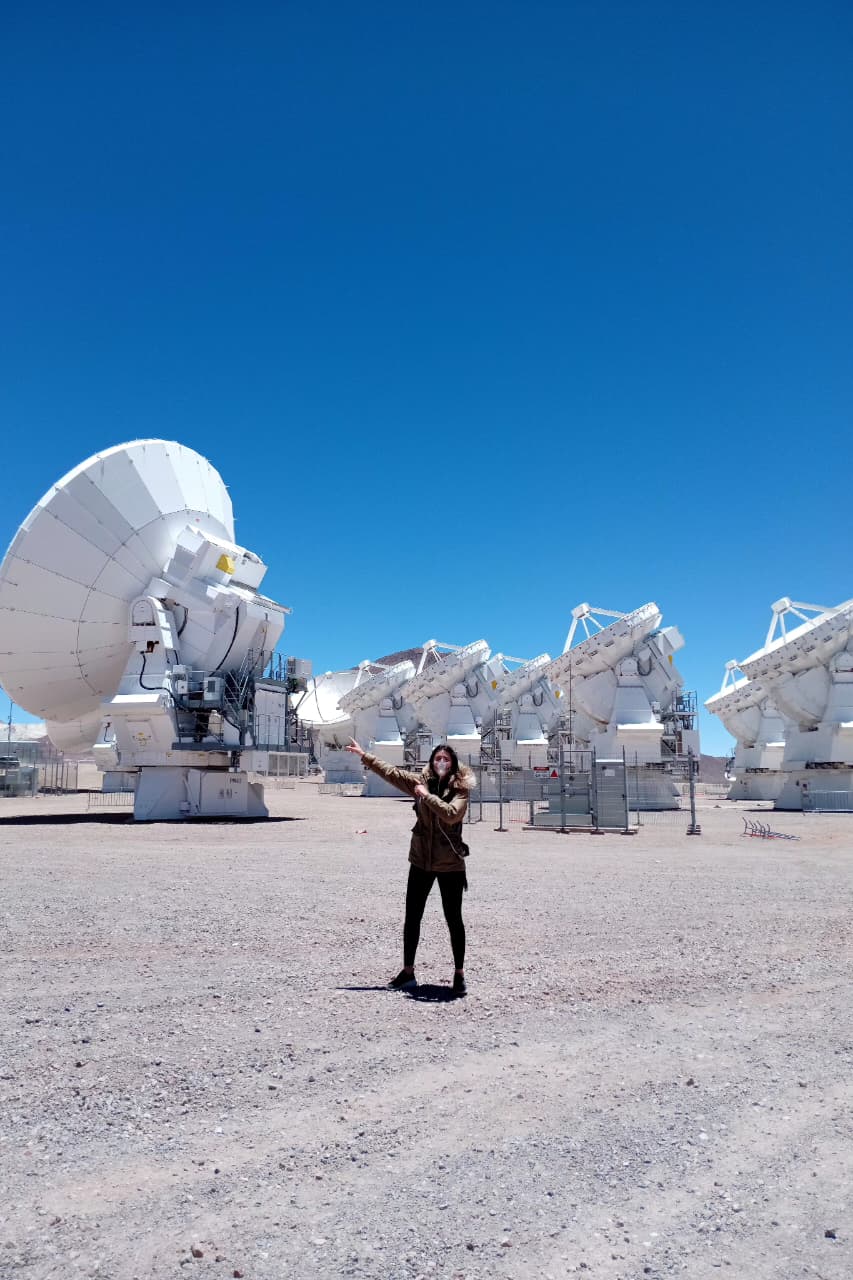Masters in Astrophysics
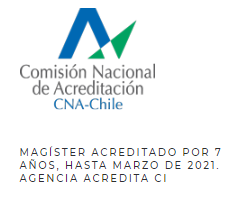
Click here to find out how to apply to the Master’s Program in Astrophysics.
The Institute of Physics and Astronomy opened its Master’s Program in Astrophysics in the year 2011 and already has 35 graduates.
- Timetable: diurnal.
- Duration: 4 semesters/78 crédits SCT.
- Vacancies: 6
Chile has a world-class infrastructure of telescopes and instrumentation. The need to train human resources to use those telescopes and develop high level astronomical research is the primary driver of our Masters Program in Astrophysics. Postgraduate studies are also an integral and fundamental part of the training process of academics and scientists who aim to achieve excellency in their professional work. All this is part of the Mission included in the Development Plan of the Faculty for Sciences of the Universidad de Valparaíso.
Aims of the Postgraduate Program
The Program aims to strengthen the basic skills of those students with degrees in physics and astronomy (or related sciences) in specialized areas of astrophysics, with the purpose of advancing top level scientific research in astronomy and related disciplines. The Program is taught by an excellent academic group, characterized by high scientific productivity and strategic alliances with national and international institutions.
Student Profile
The prospective student must have a Bachelor of Sciences degree with courses in astronomy or physics (or an academic degree or professional title that can be considered equivalent in level, content and duration). They must demonstrate that their previous studies are suitable for the aims and requirements of the Program. Those applying must likewise demonstrate an adequate knowledge of the English language.
Research areas
Please see the RESEARCH AREAS on our website to find out more about the fields of research available and the academic staff in each area. See also Research Centers and associates.
Academic Staff:
– Catalina Arcos: PhD in Astrophysics, Universidad de Valparaíso, Chile. Massive stars, stellar winds, Be stars, line variability.
– Patricia Arévalo: PhD in Astronomy, Ludwig-Maximilians-Universität, Max-Planck-Institut für extraterrestrische Physik, München, Germany. Black holes, accretion, Active Galactic Nuclei (AGN).
– Jordanka Borissova: PhD in Astrophysics and Astronomy, University of Sofia, Bulgaria. Star formation, stellar clusters, Milky Way galaxy, infrared astronomy, massive stars, variable stars.
– Graeme Candlish: PhD in Physics, University of Nottingham, UK. Numerical simulations, cosmology and gravitation.
– Víctor Cárdenas: PhD in Science, specialization in Physics, Universidad de Santiago de Chile, Chile. Cosmology, General Relativity, Dark Matter, Dark Energy..
– Michel Curé: PhD in Physics, specialization in Astrophysics, Ludwig-Maximilians Universität München, Germany. Massive stars, stellar winds, hydrodynamics, radiative transport, numerical methods, astrostatistics, astrometeorology.
– Zhen Guo: PhD in Astrophysics, Peking University, China. Stellar variability, young stars and protostars, rotation, accretion disks, young giant planets.
– Eduardo Ibar: PhD in Astronomy, University of Edinburgh, UK. Observational cosmology, galaxy formation and evolution, active galactic nuclei, deep radio, infrared and submillimetre surveys.
– Radostin Kurtev:PhD in Astrophysics and Astronomy, University of Sofia, Bulgaria. Star formation, stellar clusters, the Milky Way galaxy, infrared astronomy, very low mass stars, brown dwarfs, cool atmospheres.
– Juan Molina: PhD in Science, specialization in Astronomy, Universidad de Chile. Formation and evolution of galaxies. Galaxy dynamics. Starbursts. Host galaxies of active galactic nuclei.
– Verónica Motta: PhD in Astrophysics, Universidad de la Laguna, España. Observational cosmology, strong gravitational lensing, microlensing, AGN, accretion disks, galaxy groups and clusters, high redshift galaxies, dark matter, spectroscopy.
– Claus Tappert: PhD in Astronomy, Ruhr University Bochum, Germany. Cataclysmic variables, binary stars, novae.
– Maja Vuckovic: PhD in Astrophysics, K.U. Leuven, Belgium. Evolution of hot subdwarf stars, compact pulsators, close binary stellar evolution, asteroseismology.
– Mónica Zorotovic: PhD in Astrophysics, Pontificia Universidad Católica de Chile. Close compact binary evolution (white dwarfs, hot subdwarf stars), BPS models, common envelope phase.
Graduate Profile
Having completed their studies, the student will receive his/her degree of a Master’s in Astrophysics and will have acquired fundamental knowledge in contemporary physics and advanced astronomy. The graduate will be able to interact with other investigators through his/her professional scientific work in current areas of research and, in the future, make full scientific use of the existing astronomical infrastructure in Chile. These include observational astrophysicists working in scientific projects that make direct use of the telescopes, as well as theoretical astrophysicists whose work is the physical-mathematical modelling of the observed phenomena.
Employment opportunities
The Program provides the skills necessary for the student to successfully join the national and international professional astrophysical community, or many other scientifically-inclined organizations. Thus possible future employers include universities, higher studies institutions, astronomical observatories, research centers, scientific instrumentation developers, software developers, many state or private companies, consultants or scientific/astronomical tourism enterprises.
More information:
- Curriculum plan (in Spanish)
- Regulations of the Master’s Program (in Spanish)
